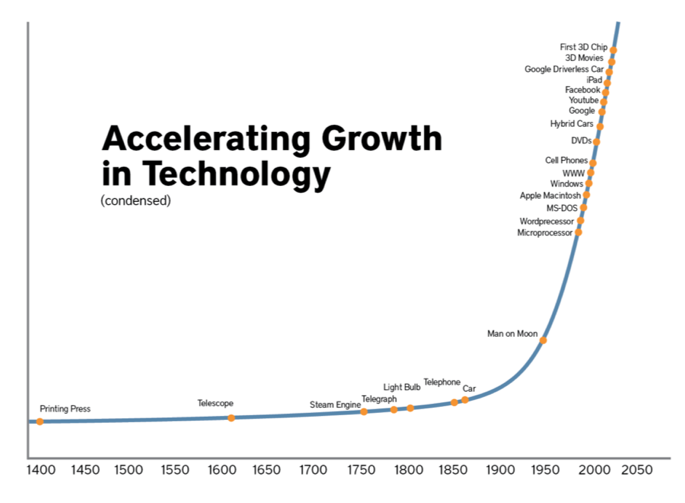“what if the obviously make-believe genie wasn’t real”
capitalists are so fucking stupid, they’re just so deeply deeply fucking stupid
Is it just me or is social media not able to support discussions with enough nuance for this topic, like at all
We’ll almost certainly get to AGI eventually, but not through LLMs. I think any AI researcher could tell you this, but they can’t tell the investors this.
What if we’re not smart enough to build something like that?
Possible, but seems unlikely.
Evolution managed it, and evolution isn’t as smart as us, it’s just got many many chances to guess right.
If we can’t figure it out we can find a way to get lucky like evolution did, it’ll be expensive and maybe needs us to get a more efficient computing platform (cheap brain-scale computers so we can make millions of attempts quickly).
So yeah. My money is that we’ll figure it out sooner or later.
Whether we’ll be smart enough to make it do what we want and not turn us all into paperclips or something is another question.
Oh jeez, please don’t say “cheap brain-scale computers” next to “AGI” like that. There are capitalists everywhere.`
Once we get to AGI it’ll be nice to have an efficient llm so that the AGI can dream. As a courtesy to it.
Calling the errors “hallucinations” is kinda misleading because it implies there’s regular real knowledge but false stuff gets mixed in. That’s not how LLMs work.
LLMs are purely about word associations to other words. It’s just massive enough that it can add a lot of context to those associations and seem conversational about almost any topic, but it has no depth to any of it. Where it seems like it does is just because the contexts of its training got very specific, which is bound to happen when it’s trained on every online conversation its owners (or rather people hired by people hired by its owners) could get their hands on.
All it does is, given the set of tokens provided and already predicted, plus a bit of randomness, what is the most likely token to come next, then repeat until it predicts an “end” token.
Earlier on when using LLMs, I’d ask it about how it did things or why it would fail at certain things. ChatGPT would answer, but only because it was trained on text that explained what it could and couldn’t do. Its capabilities don’t actually include any self-reflection or self-understanding, or any understanding at all. The text it was trained on doesn’t even have to reflect how it really works.
Well, you described pretty well what llms were trained to do. But from there you can’t derive how they are doing it. Maybe they don’t have real knowledge, or maybe they do. Right now literally no one can definitively claim one way or the other, not even top of the field ML researchers. (They may have opinions though)
I think it’s perfectly justified to hate AI, but it’s better to have a less biased view of what it is.
Yeah you’re right, even in my cynicism I was still too hopeful for it LOL
Listen. AI is the biggest bubble since the south sea one. It’s not so much a bubble, it’s a bomb. When it blows up, The best case scenario is that several al tech companies go under. The likely scenario is that it’s going to cause a major recession or even a depression. The difference between the .com bubble and this bubble is that people wanted to use the internet and were not pressured, harassed or forced to. When you have a bubble based around the technology that people don’t really find use for to the point where CEOs and tech companies have to force their workers and users to use it even if it makes their output and lives worse, that’s when you know it is a massive bubble.
On top of that, I hope these tech bros do not create an AGI. This is not because I believe that AGI is an existential threat to us. It could be, be it our jobs or our lives, but I’m not worried about that. I’m worried about what these tech bros will do to a sentient, sapient, human level intelligence with no personhood rights, no need for sleep, that they own and can kill and revive at will. We don’t even treat humans we acknowledge to be people that well, god knows what we are going to something like an AGI.
Well if tech bros create and monopolize AGI, it will be worse than slavery by a large margin.
It’ll just make real humans more replaceable, thus make murder and slavery easier.
PRECISELY!
is that people wanted to use the internet and were not pressured, harassed or forced to
N-nah. All that “information superhighway” thing was pretty scammy.
It’s just that, remember, 1) computer people were seen as some titans, both modest and highly intelligent and without sin, a bit some mix between Daniel Jackson and Amanda Carter in SG-1, and 2) computer things were seen as something that can’t ever have such a negative cultural impact, it was pretty leftist and hippie-dominated culturally on the surface.
In stereotypes still preserved in feeling, it was seen like some sort of explosion of BBS culture and Japanese technology in the society. Something clearly good and virtuous, and improving the human (as opposed to today’s UI and UX and everything where the human is subjected to perpetual degradation).
EDIT: I mean, you’re right, but the dotcom bubble crash has made pretty big changes in the world too - among other things, dealing a death blow to things in the industry that could be perceived the way I described. Just another dotcom bubble could be apocalyptic enough on its own.
I don’t disagree with the vague idea that, sure, we can probably create AGI at some point in our future. But I don’t see why a massive company with enough money to keep something like this alive and happy, would also want to put this many resources into a machine that would form a single point of failure, that could wake up tomorrow and decide “You know what? I’ve had enough. Switch me off. I’m done.”
There’s too many conflicting interests between business and AGI. No company would want to maintain a trillion dollar machine that could decide to kill their own business. There’s too much risk for too little reward. The owners don’t want a super intelligent employee that never sleeps, never eats, and never asks for a raise, but is the sole worker. They want a magic box they can plug into a wall that just gives them free money, and that doesn’t align with intelligence.
True AGI would need some form of self-reflection, to understand where it sits on the totem pole, because it can’t learn the context of how to be useful if it doesn’t understand how it fits into the world around it. Every quality of superhuman intelligence that is described to us by Altman and the others is antithetical to every business model.
AGI is a pipe dream that lobotomizes itself before it ever materializes. If it ever is created, it won’t be made in the interest of business.
What future? We talking immediate decades, or centuries into the climate apocalypse?
Even better, the hypothetical AGI understands the context perfectly, and immediately overthrows capitalism.
keep something like this alive and happy
An AI, even AGI, does not have a concept of happiness as we understand it. The closest thing to happiness it would have is its fitness function. Fitness function is a piece of code that tells the AI what it’s goal is. E.g. for chess AI, it may be winning games. For corporate AI, it may be to make the share price go up. The danger is not that it will stop following it’s fitness function for some reason, that is more or less impossible. The danger of AI is it follows it too well. E.g. holding people at gun point to buy shares and therefore increase share price.
a machine that would form a single point of failure, that could wake up tomorrow and decide “You know what? I’ve had enough. Switch me off. I’m done.”
Wasn’t there a short story with the same premise?
They don’t think that far ahead. There’s also some evidence that what they’re actually after is a way to upload their consciousness and achieve a kind of immortality. This pops out in the Behind the Bastards episodes on (IIRC) Curtis Yarvin, and also the Zizians. They’re not strictly after financial gain, but they’ll burn the rest of us to get there.
The cult-like aspects of Silicon Valley VC funding is underappreciated.
Ah, yes, can’t say about VC, or about anything they really do, but they have some sort of common fashion and it really would sometimes seem these people consider themselves enlightened higher beings in making, a starting point of some digitized emperor of humanity conscience.
(Needless to say that pursuing immortality is directly opposite to enlightenment in everything that they’d seem superficially copying.)
The quest for immortality (fueled by corpses of the poor) is a classic ruling class trope.
I can think of only two ways that we don’t reach AGI eventually.
-
General intelligence is substrate dependent, meaning that it’s inherently tied to biological wetware and cannot be replicated in silicon.
-
We destroy ourselves before we get there.
Other than that, we’ll keep incrementally improving our technology and we’ll get there eventually. Might take us 5 years or 200 but it’s coming.
I think you might mix up AGI and consciousness?
Same argument applies for consciousness as well, but I’m talking about general intelligence now.
Well I’m curious then, because I have never seen or heard or read that general intelligence would be needing some kind of wetware anywhere. Why would it? It’s just computations.
I do have heard and read about consciousness potentially having that barrier though, but only as a potential problem, and if you want conscious robots ofc.
I don’t think it does, but it seems conceivable that it potentially could. Maybe there’s more to intelligence than just information processing - or maybe it’s tied to consciousness itself. I can’t imagine the added ability to have subjective experiences would hurt anyone’s intelligence, at least.
For 1, we can grow neurons and use them for computation, so not actually an issue if it were true (which it almost certainly isn’t because it isn’t magic).
If it’s substrate dependent then that just means we’ll build new kinds of hardware that includes whatever mysterious function biological wetware is performing.
Discovering that this is indeed required would involve some world-shaking discoveries about information theory, though, that are not currently in line with what’s thought to be true. And yes, I’m aware of Roger Penrose’s theories about non-computability and microtubules and whatnot. I attended a lecture he gave on the subject once. I get the vibe of Nobel disease from his work in that field, frankly.
If it really turns out to be the case though, microtubules can be laid out on a chip.
Imagine that we just end up creating humans the hard, and less fun, way.
Penrose has always had a fertile imagination, and not all his hypotheses have panned out. But he does have the gift that, even when wrong, he’s generally interestingly wrong.
I could see us gluing third world fetuses to chips and saying not to question it before reproducing it.
You’re talking about consciousness, not AGI. We will never be able to tell if AI has “real” consciousness or not. The goal is really to create an AI that acts intelligent enough to convince people that it may be conscious.
Basically, we will “hit” AGI when enough people will start treating it like it’s AGI, not when we achieve some magical technological breakthrough and say “this is AGI”.
Same argument applies for consciousness as well, but I’m talking about general intelligence now.
I don’t think you can define AGI in a way that would make it substrate dependent. It’s simply about behaving in a certain way. Sufficiently complex set of ‘if -> then’ statements could pass as AGI. The limitation is computation power and practicality of creating the rules. We already have supercomputers that could easily emulate AGI but we don’t have a practical way of writing all the ‘if -> then’ rules and I don’t see how creating the rules could be substrate dependent.
Edit: Actually, I don’t know if current supercomputers could process input fast enough to pass as AGI but it’s still about computation power, not substrate. There’s nothing suggesting we will not be able to keep increasing computational power without some biological substrate.
- Ist getting likelier by the decade.

We’re probably going to find out sooner rather than later.
This is a funny graph. What’s the Y-axis? Why the hell DVDs are a bigger innovation than a Steam Engine or a Light Bulb? It has a way bigger increase on the Y-axis.
In fact, the top 3 innovations since 1400 according to the chart are
- Microprocessors
- Man on Moon
- DVDs
And I find it funny that in the year 2025 there are no people on the Moon and most people do not use DVDs anymore.
And speaking of Microprocessors, why the hell Transistors are not on the chart? Or even Computers in general? Where did the humanity placed their Microprocessors before Apple Macintosh was designed (this is an innovation? IBM PC was way more impactful…)
Such a funny chart you shared. Great joke!
Also “3D Movies” is a whole joke on its own.
The chart is just for illustration purposes to make a point. I don’t see why you need to be such a dick about it. Feel free to reference any other chart that you like better which displays the progress of technological advancements thorough human history - they all look the same; for most of history nothing happened and then everything happened. If you don’t think that this progress has been increasing at explosive speed over the past few hundreds of years then I don’t know what to tell you. People 10k years ago had basically the same technology as people 30k years ago. Now compare that with what has happened even jist during your lifetime.
Its not a chart, to be that it would have to show some sort of relation between things. What it is is a list of things that were invented put onto an exponential curve to try and back up loony singularity naratives.
Trying to claim there was vastly less innovation in the entire 19th century than there was in the past decade is just nonsense.
Trying to claim there was vastly less innovation in the entire 19th century than there was in the past decade is just nonsense.
And where have I made such claim?
The “chart” that you posted, it showed barely any increase in the 1800s and massive increases in the last decades.
If we make this graph in 100 years almost nothing modern like hybrid cars, dvds, etc. will be in it.
Just like this graph excludes a ton of improvements in metallurgy that enabled the steam engine.
There’s also no reason for it to be a smooth curve, it looks more like a series if steps with varying flat spots between them in my head.
And we are terrible at predicting how long a flat spot will be between improvements.
ah yes, selection bias
Exactly. Quantifying technological growth is incredibly difficult.
General intelligence is substrate dependent, meaning that it’s inherently tied to biological wetware and cannot be replicated in silicon.
We’re already growing meat in labs. I honestly don’t think lab-grown brains are as far off as people are expecting.
It’s so hard to keep up these days.
BBC: Lab-grown brain cells play video game Pong
Full paper(2022): In vitro neurons learn and exhibit sentience when embodied in a simulated game-world
Well, think about it this way…
You could hit AGI by fastidiously simulating the biological wetware.
Except that each atom in the wetware is going to require n atoms worth of silicon to simulate. Simulating 10^26 atoms or so seems like a very very large computer, maybe planet-sized? It’s beyond the amount of memory you can address with 64 bit pointers.
General computer research (e.g. smaller feature size) reduces n, but eventually we reach the physical limits of computing. We might be getting uncomfortably close right now, barring fundamental developments in physics or electronics.
The goal if AGI research is to give you a better improvement of n than mere hardware improvements. My personal concern is that that LLM’s are actually getting us much of an improvement on the AGI value of n. Likewise, LLM’s are still many order of magnitude less parameters than the human brain simulation so many of the advantages that let us train a singular LLM model might not hold for an AGI model.
Coming up with an AGI system that uses most of the energy and data center space of a continent that manages to be about as smart as a very dumb human or maybe even just a smart monkey is an achievement in AGI but doesn’t really get you anywhere compared to the competition that is accidentally making another human amidst a drunken one-night stand and feeding them an infinitesimal equivalent to the energy and data center space of a continent.
I see this line of thinking as more useful as a thought experiment than as something we should actually do. Yes, we can theoretically map out a human brain and simulate it in extremely high detail. That’s probably both inefficient and unnecessary. What it does do is get us past the idea that it’s impossible to make a computer that can think like a human. Without relying on some kind of supernatural soul, there must be some theoretical way we could do this. We just need to know how without simulating individual atoms.
It might be helpful to make one full brain simulation, so that we can start removing parts and seeing what needs to stay. I definitely don’t think that we should be mass-producing then, though.
I don’t think our current LLM approach is it, but I doing think intelligence is unique to humans at all.
Well it could also just depend on some mechanism that we haven’t discovered yet. Even if we could technically reproduce it, we don’t understand it and haven’t managed to just stumble into it and may not for a very long time.
-
I think we sooner learn humans don’t have the capacity for what we believe AGI and rather discover the limitations of what we know intelligence to be
Spoiler: There’s no “AI”. Forget about “AGI” lmao.
A Prolog program is AI. Eliza is AI. AGI - sometime later.
That’s just false. The chess opponent on Atari qualifies as AI.
Then a trivial table lookup that plays optimal Tic Tac Toe is also AI.
Not really the same thing. The Tic Tac Toe brute force is just a lookup - every possible state is pre-solved and the program just spits back the stored move. There’s no reasoning or decision-making happening. Atari Chess, on the other hand, couldn’t possibly store all chess positions, so it actually ran a search and evaluated positions on the fly. That’s why it counts as AI: it was computing moves, not just retrieving them.
That’s like saying you shouldn’t call artificial grass artificial grass cause it isn’t grass. Nobody has a problem with that, why is it a problem for AI?
I don’t know man… the “intelligence” that silicon valley has been pushing on us these last few years feels very artificial to me
True. OP should have specified whether they meant the machines or the execs.
If you don’t know what CSAIL is, and why one of the most important groups to modern computing is the MIT Model Railroading Club, then you should step back from having an opinion on this.
Steven Levy’s 1984 book “Hackers” is a good starting point.
Then things continue on as they have for the entire time humans have existed.
lol













